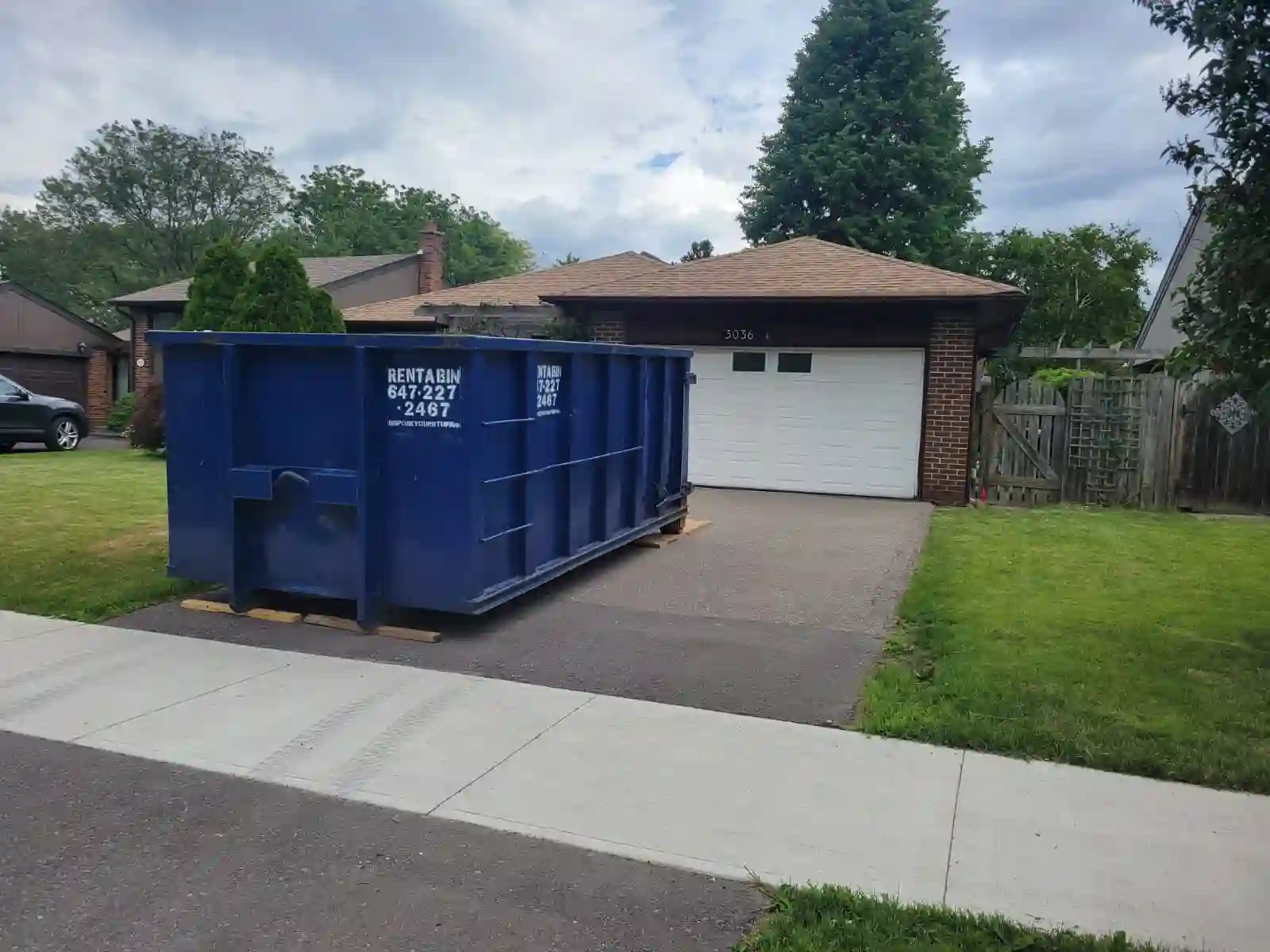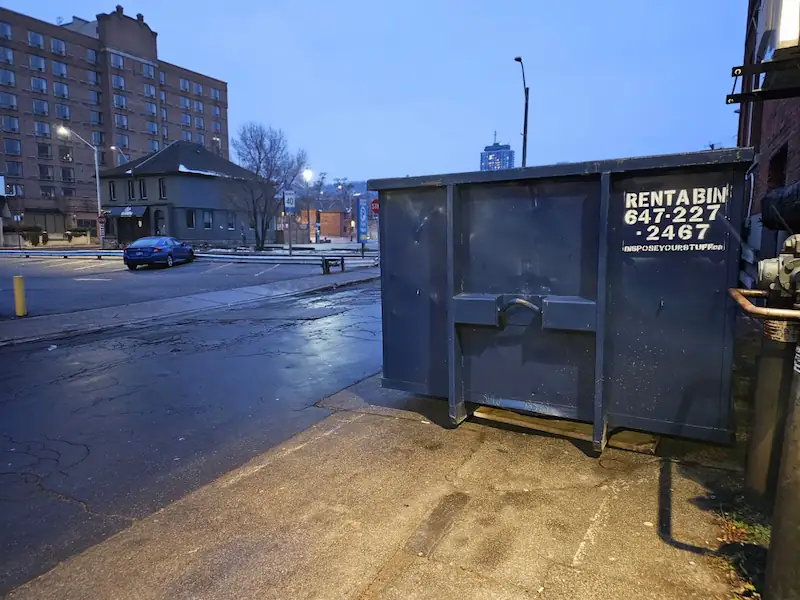A new fence here, a kitchen gut there—home projects add up, and so do disposal headaches. Burlington’s 2025 by‑law refresh puts sharper teeth on road‑occupancy permits, damage deposits, and daytime safety rules. Below, we translate the fine print into plain English, show how the right bin size (4-, 10‑, 14‑, 20‑ or 40‑yard) can save you paperwork, and flag easy wins—so you stay focused on the job instead of surprise fines.
When a Permit Is Mandatory
Burlington classifies every street, sidewalk and boulevard as public right‑of‑way. The moment your dumpster touches that zone—even by a few centimetres—you need a Road‑Occupancy Permit. Place the bin fully inside your driveway or yard and the permit vanishes, saving the standard $108.82 application fee and the $1,000 refundable deposit. Keep these bright‑line triggers in mind:
- Private property only: No permit.
- Any overlap with curb, sidewalk or boulevard: Permit required.
- Projects longer than five consecutive days on public land demand a Municipal Consent add‑on.
Unsure if your driveway can handle the footprint? Compare actual bin dimensions in our size & price chart before you file paperwork.
Permit Application in Four Quick Steps
- Download Burlington’s Road‑Occupancy Permit form and mark “waste container” as the equipment type.
- Sketch a simple site plan: driveway, lot lines, distance to curb, and clearance from hydrants or trees.
- Email or hand‑deliver the form to the Transportation Office, then pay the $108.82 fee plus your $1,000 damage deposit.
- Apply at least five business days before delivery; the city replies by email with an approval letter and a bright‑green permit tag for the bin.
Many contractors bundle this admin into a turnkey quote—if you’re tackling a complex remodel, ask whether a construction bin rental includes permit handling.

Key Placement & Safety Rules
- Maintain at least one metre of pedestrian clearance if the bin sits near a sidewalk.
- Never block hydrants, bus stops or utility shut‑offs; by‑law officers ticket on sight.
- Night‑time placements on public land require reflective barricades or cones rated to Ontario MTO spec.
- Insurance riders must cover $2 million liability while the bin occupies the road allowance.
Smart Tip
Measure twice, rent once: a compact 4-yard bin swallows up to three pickup‑loads but still fits most suburban drives. Jump to 14 or 20 yards and you may clip the sidewalk—meaning permits, barricades and extra cash.
Avoiding Costly Pitfalls
- Skipping the permit: City crews can tow or impound the bin and bill you full removal costs.
- Late applications: Missing the five‑day window can delay drop‑off, pushing trades off‑schedule.
- Wrong size: Ordering a 40‑yard monster for a modest clean‑out invites complaints—and a potential zoning visit.
For lighter loads such as basement junk, our curbside removal team may be cheaper than a full container and carries zero permit red‑tape.

Final Takeaways
Burlington’s 2025 by‑law refresh toughens enforcement but keeps rules crystal‑clear:
- Keep the bin fully on private property—no permit, no fee.
- Cross the public line? Budget for $108.82, a $1,000 deposit and five days’ notice.
- Pick bin sizes wisely: 4- and 10‑yard units dodge most headaches; 40‑yard giants almost always need city sign‑off.
- Use cones, barricades and visible permits to avoid tickets and neighbour complaints.
Need a bin ASAP? Book online below and our crew will confirm dimensions, apply for permits if required and set up safety gear—so you can get back to the remodel, not paperwork.
